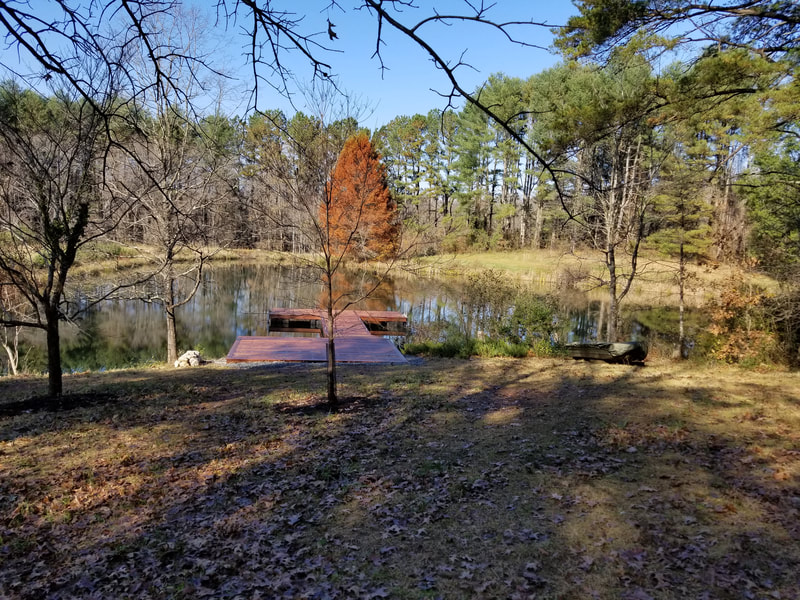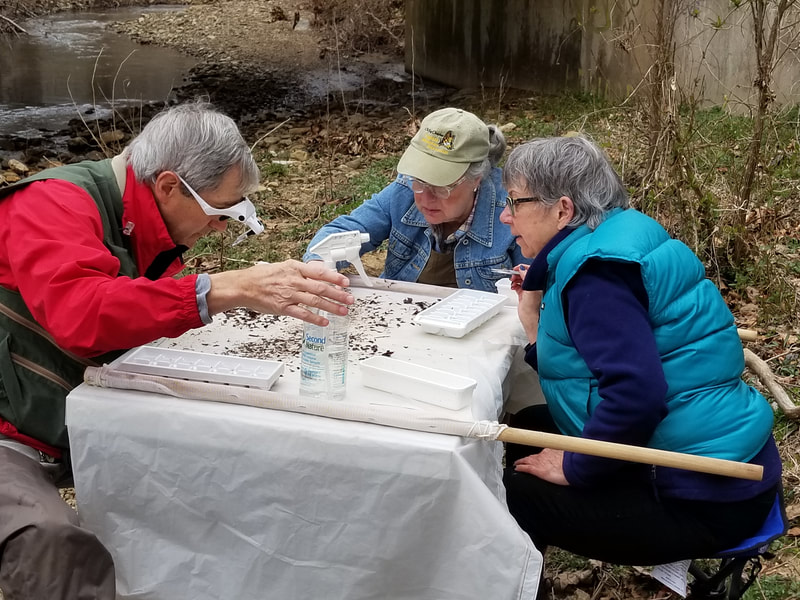|
Going from a career as a banker to becoming a Master Naturalist might seem like a major life shift – but for Dera Cooper, it was a natural progression that reflects her lifelong love of animals and being outside in nature. Born in Dallas, Texas, Dera and her family moved around the United States as they followed her father’s career as an engineer. Connecticut was the last place she lived with her family before getting married and starting a family of her own. Her career as a banker included stints with JPMorgan and Bank of America, where she primarily worked with large nonprofits – including several conservation-oriented firms – as well as colleges and universities. When she and her husband David, who also had a career in banking, retired in 2016 they moved from Chevy Chase, Maryland to Madison County.
When and how did you become interested in nature and the natural world? Dera has always loved animals. “There have always been dogs in my life”, she said. Like many girls, she also wanted to have a horse but to her disappointment, that never happened. Her interest in mammals continued when she became a Master Naturalist. One of her first volunteer activities was with the Smithsonian Conservation Biology Institute (SCBI), where she drove a 15-passenger van that took visitors around the SCBI facility in Front Royal. She learned a lot about different endangered species and had the incredible opportunity to see an annual exam of one of their clouded leopards. [Note: This cat is considered a threatened species with a decreasing population trend. Since 90% of what is known about clouded leopards comes from research on captive populations, SCBI’s collaboration with international partners is providing critical information to efforts to protect this threatened animal.] Describe what you do on your property to support a healthy ecosystem. Dera and her husband moved to Virginia in 2016, where they brought a 54-acre parcel. “Part of the land was originally a tree farm,” Dera explained. The owner had planted a lot of different trees (mostly non-native) that he liked but in no particular order. There was also a significant amount of non-native invasive species on the property such as ailanthus, autumn olive, and bittersweet. Dera and her husband initially focused on removing plants that threatened their pond’s dam. “We have worked each year to remove the invasives and let the land ‘do its own thing’,” she explained. Some land is still in hay production and they have a good variety of pines and hardwoods such as hickory and oak. They have observed many mammals, including foxes, groundhogs, and in their first year, two young bears that walked up their driveway while they were sitting on their front porch (they moved inside right away). “There is a natural stand of blue sedge in the front yard that we don’t mow,” Dera explained. “We leave it for the birds.” What is the most amazing thing you have experienced in nature? When Dera and David lived in Maryland, they had a weekend house on the Eastern Shore. “I was standing outside looking over the water and a bald eagle barreled down from the sky, caught a humongous snake, and flew off. It was truly breathtaking” she said. As the VMH Coordinator for ORMN, what would you like our members to know? When they first moved to Virginia, Dera became friendly with her neighbor who encouraged her to become a Master Naturalist. As a member of ORMN’s Class 8, Dera took to heart the request made during class that member support in administrative functions was critical to the continuation of the chapter. So when the VMN Coordinator at the time stepped down, she accepted the responsibility and has been in this position for three years. “It is so important for each of the members to help with administrative tasks,” she said. “And to make a pitch for my area, you can put in your time in the comfort of your own home and earn volunteer hours really quickly!” Dera described the importance of reporting volunteer hours, particularly volunteer hours for our State sponsors. “Our sponsors need this information to justify their involvement with us, which sometimes includes funding.” She continued, “If members don’t record volunteer hours, ORMN doesn’t get credit for all the time we collectively invest in our sponsors and partners.” At the end of each calendar year Dera’s team “scrubs the data” to make sure everything is accurate. They check each entry for correctness and consistent language. They then compile it for inclusion in ORMN’s annual report which is submitted to the State VMN office. The State VMN compiles the data from chapters across the State and submits it to the various sponsors and partners. Dera and her team are always ready to help any member who has problems with entering information into the VMN system. “The system is set up to allow you to go back and easily correct something you may have entered incorrectly.” The Volunteer Management System is being updated this coming year and Dera hopes it will be easier for members to use. She also hopes that members will take her plea to heart. “Your volunteer hours are so valuable!” she said. “We want to be sure that our sponsors and partners know of the exceptional contributions made by the members of Old Rag Master Naturalists and you are recognized for all your hard work.” Her ending request: “Let’s make sure VMN, our sponsors and our partners recognize how much we value them by documenting the many, many hours of support we give them each year.” Interviewed by Charlene Uhl, November 13, 2020 Comments are closed.
|
AuthorWrite something about yourself. No need to be fancy, just an overview. Archives
December 2023
Categories
All
|


 RSS Feed
RSS Feed